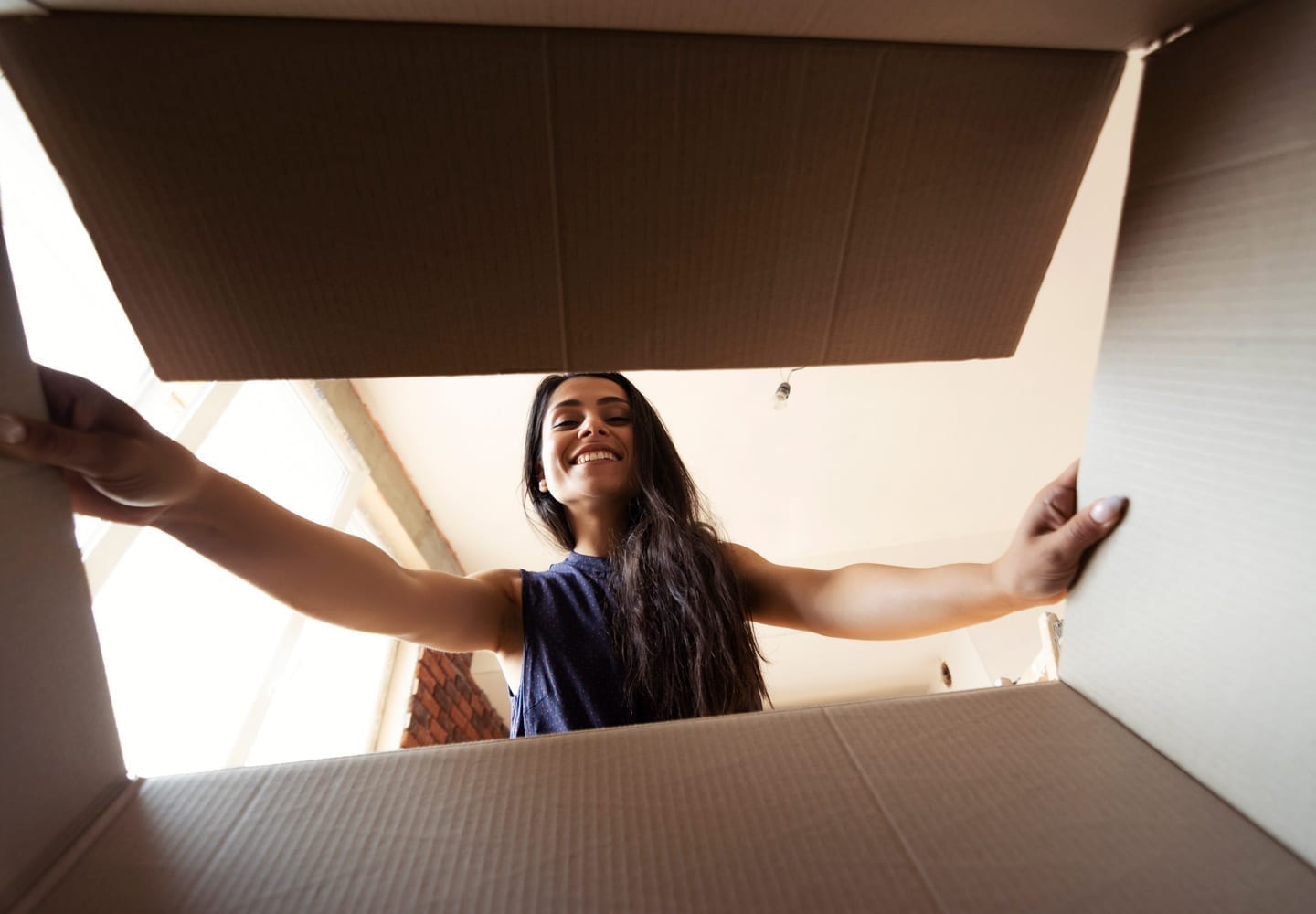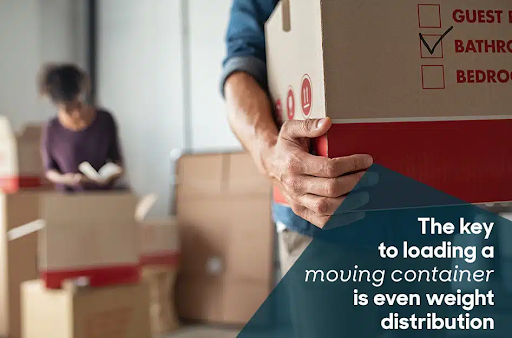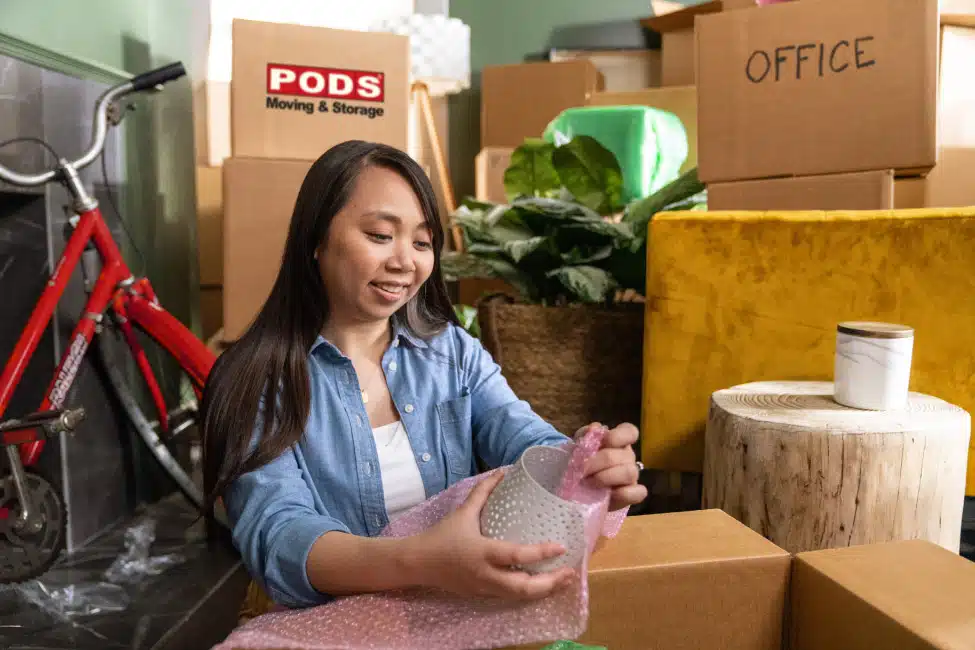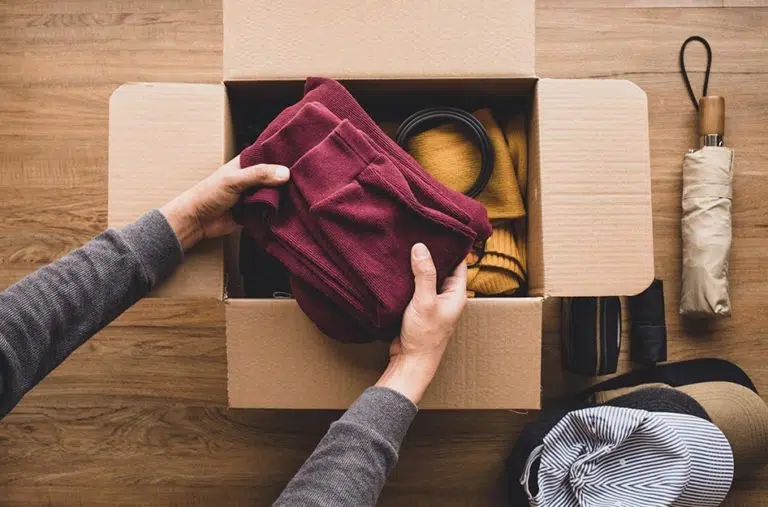How To Pack for a Move: 7 Things to Keep Out of Boxes
Packing Tips and Hacks

Wondering how to pack for a move the right way? You may be surprised to learn that it’s just as important to pay attention to what doesn’t need to be packed as what does. Sure, there are tons of recommendations on how to pack up your home (like these tried-and-true pro moving and packing tips from the PODS Blog), but what often gets less attention is what not to pack when moving.
So from flammable materials to weed killer, here’s some ammunition on preventing packing mistakes and moving safely. (And, yes, ammunition is on the list, too.)
1. Food, drinks, and other perishables
It may be tempting to slide your arm across the pantry shelf, sweep all the stuff into a box, and call it a day. But we urge you to skip the shortcut and either get rid of perishable items or find another method of transportation.
Of course no one likes paying for a big grocery bill to stock up a new kitchen, but bags can leak, glass can break, spice jars can explode — all kinds of potentially messy acts may happen if you pack perishable goods. Not to mention pests can easily chew through a cardboard box to get to your snack stash. If there are certain things you’d like to transport to your new house, use a cooler or cold bags instead.
But what about unopened items, you ask? Sealed, dry foods are probably fine to transport in boxes, but they could break apart in transit. You can try to pack your cans, too, but even they’re not dent-proof. To avoid mishaps, consider donating whatever isn’t appropriate to move to a local food pantry. For everything else, clean out your refrigerator and freezer at least 24 hours before moving day.
2. Valuables and irreplaceable items
While your moving company will be handling items with a lot of actual or sentimental value, there are certain things that are best left out of the moving box and in a more secure location. No matter how reliable your moving company is, accidents can happen, and some things just can’t be replaced. Examples include:
- Wills, deeds, and car titles
- Moving paperwork
- Financial records and documents with sensitive information
- Medical and school records
- Car keys
- Birth certificates, social security cards, and other means of identification
- Laptops, cell phones, tablets, and other personal devices
- Special jewelry, antiques, and collectibles
- Cash (you’ll need this for tipping your movers!)
3. Hidden intruders
Speaking of insects and other pests, plants aren’t the only way these uninvited houseguests can sneak their way onto your moving truck and into your new home. Gypsy moths and spotted lanternflies are able to attach themselves to your lawn equipment or even your storage container and are capable of destroying several important crops, shrubs, and trees. That’s why The U.S. Department of Agriculture requires homeowners or qualified professionals who live in a quarantined area to inspect household goods prior to moving to a non-infested area.
4. Ammunition and explosives
This is like when your mom told you not to run with scissors. You probably weren’t tempted to do it, but it doesn’t hurt to have a safety reminder. When ammunition and fireworks are hot, they can go off. They should be kept separate from firearms and in an air-conditioned space.
5. Flammable liquids and materials
It’s a simple math equation: Hazardous materials plus pressurization raised to a high temperature can equal combustion. Avoid a disaster by leaving the following items behind:
- Matches
- Lighter fluid
- Acid
- Gasoline
- Paint and paint thinner
- Car batteries and other batteries
- Aerosols
- Pool chemicals
- Nail polish and nail polish remover
- Charcoal and propane
- Kerosene
- Fertilizer and insecticide
Household cleaners also should not be packed in moving boxes because they likely contain ammonia or bleach. When the moving truck chemicals combine with these cleaners, they can give off dangerous fumes, spark a fire, or turn into fatal gasses.
| Q: What do moving companies not move? A: When it comes to hazardous materials and explosives, not only should you not pack them, you’ll likely be forbidden from packing them. It’s a moving safety and liability issue for the moving company. This includes all items listed above and anything else with inherent danger. And while you likely know not to put a tank of gasoline into a moving truck, you may forget that your lawn mower is holding some gasoline inside of it, too. Remember to drain everything before loading. |
6. The daily essentials (i.e., what to keep with you when moving)
Unpacking can take a little longer than expected, so be prepared to spend a few days — or even weeks — sorting through boxes. That can be a long time to hunt for that electric toothbrush.
To prevent ripping into every box labeled “Bathroom,” set aside the things you know you’ll need for the first week at your new home. This can include clothing, toiletries, personal electronics, chargers, and prescription medication. Want to make it even easier on yourself? Pack things inside a clear bin or container, to pinpoint exactly where items are.
7. Broken or unneeded items
This one isn’t a moving requirement, but packing is a lot of work, so why spend valuable time wrapping up and loading stuff that won’t — or can’t — be used in your new home?
Make life easier by doing the following before the big day:
- Have a decluttering session.
- Host a garage sale to get rid of unwanted items — and make a little money while doing it.
- Donate the remainder of your discard pile.
- Pack the things you really want and use.
| Before you start packing moving boxes: Check out our essential moving supplies checklist to make sure you have everything you need. |
Having trouble deciding what stays and what goes?
To de-stress your move and hold stuff while you complete your purging, consider using a portable storage container. It’s simple: PODS will deliver a container straight to your driveway for easy loading on your own schedule. Then, they’ll pick it up and take it to your new home or keep it in a secure storage center until you’re ready for it.
LB Gabriel is a freelance writer who lives with her husband, daughter, and Golden Retriever in Memphis, TN. A frequent PODS Blog contributor, she's a sucker for any tip she can find on downsizing, cutting clutter, or minimalist living. When she's not on a deadline, you can find her on a tennis court or golf course.

Your quote in 60 seconds
Get pricing tailored to your needs!








